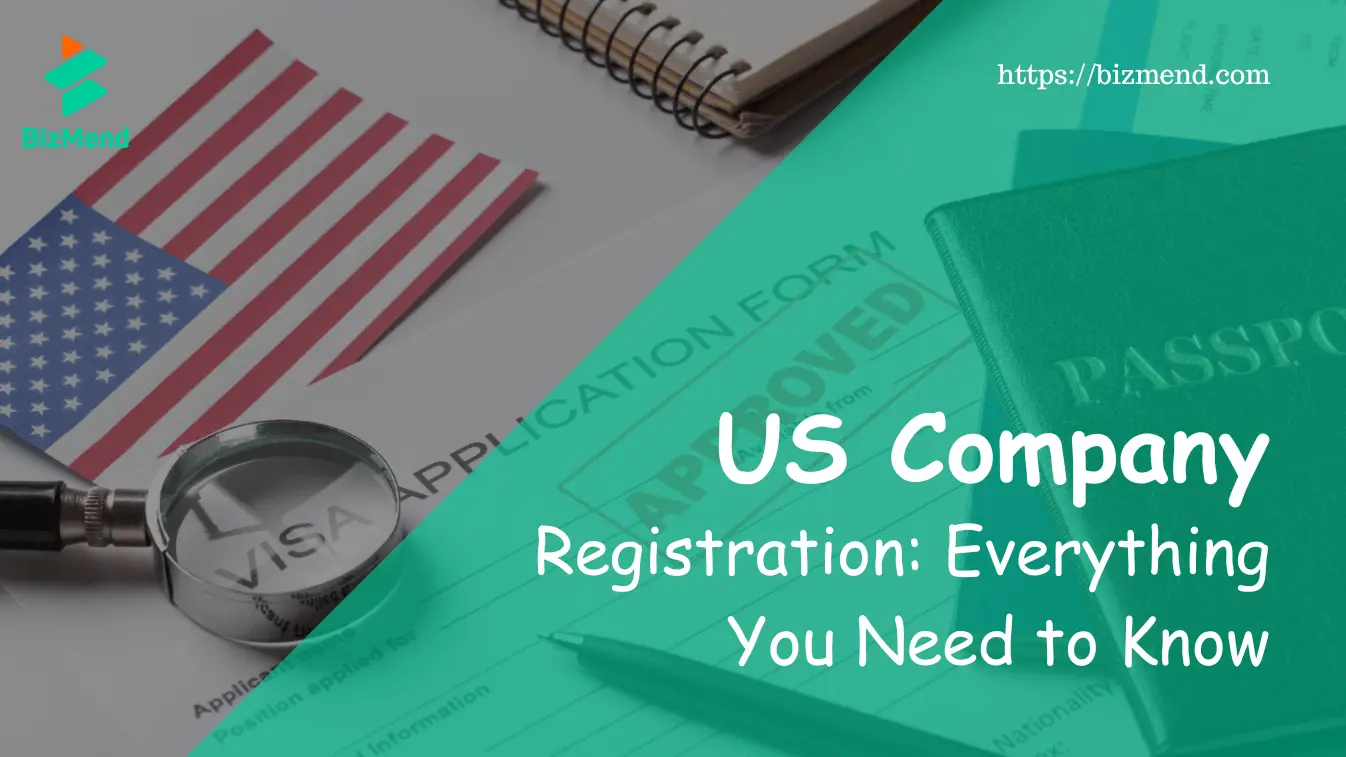“A US company registration is fast, but building it right? That’s where most people fumble.”
So, You’re Eyeing the U.S. for Your Next Venture?
Smart move.
The United States isn’t just one of the world’s largest economies. It’s also one of the easiest places to start a company, at least on paper. You don’t need to be a citizen. You don’t need to live there. And in many states? A company can be registered in about 48 hours.
But—there’s always a but—fast doesn’t mean frictionless. And if you’re a non-resident founder or new to the company formation in the US game, this blog’s your cheat sheet.
Let’s talk structure, paperwork, state choice—and because this is the U.S., a little cultural decoding too.
Why the US?
Here’s what draws founders to the US:
- Access to Stripe, PayPal, and U.S. bank accounts
- Global trust (an “LLC, US” just sounds strong)
- Investor readiness—if you’re chasing VCs or accelerators
- A system that doesn’t ask “where you’re from” before asking “what are you building?”
And here’s the thing about the US: your business structure is your handshake. It tells banks, platforms, and potential partners, “Hey, I’m serious, and I came to play by the rules.”
That said, this is a country where tax filings can trip up a millionaire—and a solo founder with the right paperwork can land a six-figure deal. So let’s get this structure clean.
Quick Look: Company Structures Available in the U.S.
When you’re forming a business in the U.S., you’ve got options—but not all of them fit non-residents.
Here’s the shortlist:
LLC (Limited Liability Company): Most flexible. Excellent for service businesses, solo entrepreneurs, or small teams.
C-Corporation: Ideal if you’re raising funds or issuing shares. Popular with tech startups and VCs.
S-Corporation: Not for you if you’re a non-resident. U.S. citizens or residents with a valid SSN only.
Sole Proprietorship: Sole proprietorships are very informal. Only applies to individuals with a valid U.S. presence (not recommended for non-residents).
Partnership: Possible for foreign partners, but messy without a local legal base.
Important Note: Wondering about S Corp or C Corp? Well, to be honest, you can’t form an S-Corp if you’re not a U.S. citizen or resident. No SSN? No S-Corp. Stick with LLC or C-Corp—that’s where your flexibility lives.
LLC vs. Corporation: What Should You Choose?
Most non-resident founders go with an LLC (Limited Liability Company). Why?
- Fewer formalities
- No shares or board meetings required
- Pass-through taxation (you avoid double tax)
- Accepted by Stripe, PayPal, Mercury, etc.
A Corporation (C-Corp) is ideal if:
- You’re raising venture capital
- Planning to issue shares or go public someday
- Need a more traditional structure for larger teams or shareholders
Still unsure? Start with an LLC—you can always change it later. No one penalizes you for starting lean. To be more clear on the topic, explore our blog on “Difference Between LLC and C Corporation in the U.S.”
Best States to Register (Hint: It’s Not Always Delaware)
Yes, Delaware is the “startup capital” for tech founders and VC-backed ventures. But if you’re not chasing Sand Hill Road just yet, there are smarter choices.
- Wyoming: Low filing fees, great privacy, startup-friendly rules
- New Mexico: Very affordable, anonymous ownership allowed
- Florida or Texas: Great for those planning a physical presence or hiring in the state
Just remember—in the U.S., every state is its own sandbox. The rules change when you cross the state line, so don’t just follow the crowd; choose based on what your company actually needs.
Feeling confused? Consult with an expert to be clear on what you want.
Documents You’ll Need to Start US Company Registration Process
The process of USA business registration is surprisingly light if you’re organized. Here’s what you’ll need:
- A company name (check availability online)
- A registered agent (a local contact to get legal mail)
- A physical U.S. address in your state of formation
- Articles of Organization or Incorporation
- An Operating Agreement (for LLCs)
- IRS Form SS4 (Application for EIN)
- A U.S. business bank account (usually after getting your EIN)
Timeline & Cost
- Company registration: 1–2 days in most states
- EIN (tax ID): 3 days to 5 weeks, depending on how and when you apply
- Bank account: same day if done with Stripe Atlas or Mercury partners
- Cost:
- State fees: $50–$300
- Registered agent: $50–$150/year
- Franchise tax or report: $0–$800/year, depending on state
So yes, you can technically start a U.S. company under $300. But think long-term—don’t skimp on essentials that keep your business legit.
Culture Check: What It’s Like Doing Business in the U.S.
In the U.S., time is currency. Business conversations move fast, and fluff doesn’t fly. If you’re used to a relationship-first approach, this may feel abrupt—but it’s not personal. It’s just cultural.
Here’s what to expect:
- Meetings that start on time and end with a checklist
- Emails over WhatsApp. Docs over calls.
- Contracts—even for favors.
- “Let’s circle back,” “ping me,” and “what’s the bottom line?” aren’t filler—they’re signals.
Also, first names are normal, even with CEOs. Small talk is brief. Deliverables matter more than degrees. And if you’re not following up, someone else will.
Compliance Isn’t Optional
Here’s what gets missed a lot:
- Annual reports due to your state
- Franchise tax (even if your revenue is $0)
- IRS filings, especially if you’re earning from U.S. customers
- Sales tax or nexus issues, if you’re shipping products or running an e-commerce brand
Can You Run a U.S. Company from Abroad?
Absolutely. You don’t need a U.S. visa or green card to own a business. Many founders manage remotely and open U.S. bank accounts with Mercury or Relay.
Stripe will also approve non-residents if your structure is sound.
But if you plan to:
- Move to the U.S.
- Work for your company full-time
- Raise from U.S. VCs in person
Then yes, you’ll need to explore E-2, L-1, or other business visas later.
But for now? Remote is fully legal.
A Quick Word on American Business Culture
There’s something you need to understand: In the U.S., no one’s waiting for permission to build.
If you’ve got an idea and the guts to execute, there’s a path for you.
But…
They expect:
- Transparency
- Fast responses
- A clear pitch
- And clean paperwork
It’s a land where someone can build a SaaS company from a coffee shop and pitch to a VC the next day. No one asks where you started; they ask where you’re going.
So show up ready. Keep it clean. And don’t fake it—own it.
You Can Form a U.S. Company in One Day, But Build It Like It’ll Last a Decade
Yes, it’s fast. Yes, it’s global. But that’s exactly why structure matters.
So file it right. Choose your state carefully. Document everything. And don’t assume Stripe, Mercury, or PayPal are the finish line—they’re just the tools.
Because in the U.S., when your legal foundation is solid, doors open faster.
And in a place where time is money? That’s worth everything.
FAQ
Can I start a US company without being a citizen there?
Yes. You don’t need to be a citizen or even live in the US to start a company. You can register an LLC or C-Corp remotely. Just make sure you’ve got a U.S.-registered agent and a mailing address sorted.
Which structure’s better for a non-resident: LLC or C-Corp?
Start with an LLC. It’s simpler, flexible, and easy to manage. Go C-Corp only if you’re raising VC funds or issuing shares.
Can I form an S-Corp as a foreigner?
No. S-Corps are restricted to U.S. citizens or residents with a valid SSN. If you’re non-resident, S-Corp isn’t an option.
How quickly can I get my U.S. company up and running?
Usually 1–2 business days for registration, and 3–15 days for your EIN (tax ID). If everything’s smooth, you can be fully set up in under two weeks.
Is it necessary to be physically in the U.S. to register or manage my business?
No. You can manage everything remotely—registration, bank account, payments, taxes. But if you want to work from the U.S., you’ll need a proper visa later.
Can I open a U.S. bank account without going there?
Yes. Platforms like Mercury, Relay, and some international banks let you open an account remotely after your LLC is approved and you have your EIN.
What are the basic documents I need to start?
You’ll need:
- A unique company name
- A U.S.-registered agent
- Articles of Organization
- EIN from the IRS
- An Operating Agreement (if LLC)
- U.S. address
What if I miss annual filings or taxes?
Your company can get suspended or shut down. Worse? Your Stripe, PayPal, and bank accounts may get frozen. U.S. compliance isn’t optional—file everything, on time.
Can I run a U.S. company while living abroad?
Yes. Tons of founders do. Just make sure your compliance is clean, your tax filings are covered, and your payment processors know who you are.












